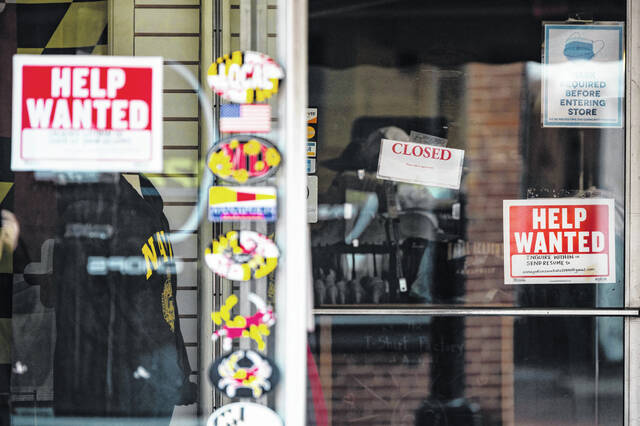Dear Editor,
Sorry to leave you in the lurch this week but I quit.
Jon
That’s a joke for me (get it, boss?), but across America this is another COVID-induced trend with records of people quitting.
Dubbed “The Great Resignation,” the causes are many. Among them: Health concerns, long-growing unhappiness with a job brought into focus by the pandemic, the prospect of ending remote work and people retiring sooner than planned.
Data back this up. According to the U.S. Bureau of Labor Statistics, the national “quit” rate (part of the Job Openings and Labor Turnover Survey or JOLTS), jumped to 3% of the nonfarm workforce in September. That’s the highest number since tracking began 20 years ago. In September alone, 4.4 million people voluntarily left their jobs.
But that’s not the whole story. Hiring is strong, too. In September, employers hired 2 million-plus more workers than those who quit, although national employment is still below pre-COVID levels.
Economists at Barclays produced a report saying “the Great Resignation” will be temporary:
“We believe that this resignation dynamic is mostly a symptom of other underlying forces that are affecting labor market participation, rather than a cause,” according to Barclays deputy chief U.S. economist Jonathan Millar.
“Indeed, the high quit rate is a red herring for understanding the sluggish return of workers to the US labor market following the COVID-19 pandemic, in our view,” Millar continued. “Instead, the true cause is a hesitation of workers to return to the labor force, due to influences tied to the pandemic such as infection risks, infection-related illness, and a lack of affordable child care.”
The quits are highest in tech and health care.
Meanwhile large numbers are contemplating quitting.
According to a Harris Poll conducted for Catalyst and CNBC in October, 76% of respondents want their employers to offer more flexible work, whether in schedule or location. But almost as many say their employers think they are more innovative and work harder in the office.
Readers have asked me what these quitters intend to do. Are they living off unemployment or savings or parents? Aren’t they worried about the employer-provided safety net, especially health care?
It is a head-scratcher. I was very careless in picking my parents so I always had to work to survive, and I’m fortunate to have a calling I love.
At least some people are starting their own businesses, a measure that shot up during COVID-19. Others are moving to better, higher-paying jobs — or hanging on for ones. Still others chose to move up their retirement. Surging stock portfolios and stimulus checks helped some.
In June, NPR profiled a food-service worker who quit his job as general manager of a San Diego restaurant. His decision was propelled by dealing with staff shortages, combative unmasked customers and finally contracting COVID-19 himself. Unemployment checks gave him a cushion to figure out a new chapter.
The pandemic has spawned a cottage industry of hot takes, about how it will change everything forever. Offices are over! Central business districts are dead! Remote work is here to stay! People are fleeing big cities (that didn’t happen)! Maybe some of it might even come true.
The Great Resignation may be a profound inflection point. Or it may be a moment when the pandemic gave workers some breathing room to realize how much they hated their jobs and wanted to find something better. As with the rest, we’ll see.
A store advertises a Help Wanted sign in Annapolis, Maryland, on May 12, 2021.
Credit: Source link









